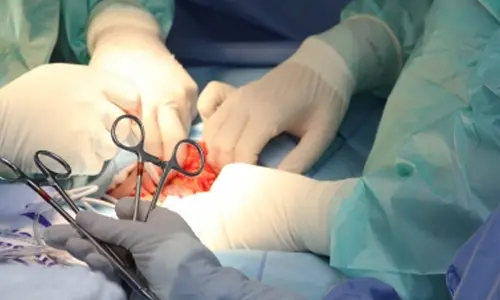Pharma MSMEs need handholding

Pharma MSMEs need handholding
The Indian Pharmacopoeia Commission (IPC), which was established by the central government to promote the highest standards of medicines for use in humans and animals within practical limits of the technologies available for manufacture and analysis, has become the third Pharmacopoeia Commission in the world to have more than 1000 Pharmacopoeial Reference Standards in its inventory.
The Indian Pharmacopoeia Commission (IPC), which was established by the central government to promote the highest standards of medicines for use in humans and animals within practical limits of the technologies available for manufacture and analysis, has become the third Pharmacopoeia Commission in the world to have more than 1000 Pharmacopoeial Reference Standards in its inventory.
The inventory of Indian Pharmacopoeial Reference Standards (IPRS) reached the 1000 landmark with the launch of Sitagliptin Impurity A which is a dipeptidyl peptidase-4 inhibitor and used to improve glycemic control in patients with type-2 diabetes. The 1000th IP Reference Standard - Sitagliptin Impurity A was launched by the members of the scientific body during the 50th Scientific Body meeting of Indian Pharmacopoeia Commission on September 28, 2022.
Sitagliptin is among 15 impurities launched by IPC recently. The other impurities are Amiodarone Impurity A, Amiodarone Impurity B, Amlodipine Impurity D, Cefradine, Cephraddine, Diazepam Impurity B, Econazole Nitrate, Fenbendazole Impurity B, Fluconazole Impurity C, Indapamide Impurity A, Norfloxacin Impurity E, Quetiapine Impurity A, Teneligliptin Impurity C, 6-chloro-3-hydroxyamide (Chlor Homolog impurity).
IPC launched the first Reference Standard of anti-diabetic drug, Pioglitazone in 2010. Later Indian Pharmacopoeia 2014 contained separate monographs for anti-diabetic drugs, metformin tablets and metformin prolonged release tablets. In August this year IPC added five new Indian Pharmacopoeial Reference Standards and seven new impurity reference substances to Indian Pharmacopoeia 2022. The list of impurity reference substances contained clobazam impurity A, levocetirizine amide, lumefantrine related compound A, quetiapine impurity I, tamoxifen citrate impurity standard, tinidazole impurity B, trimethoprim impurity B. On the other hand, the list of Indian Pharmacopoeial Reference Standards included disopyramide phosphate, dolutegravir sodium, estradiol hemihydrate, propofol, tenofovir alafenamide fumarate.
The IPC has also come out with the publication of the ninth edition of IP 2022 which will be effective from December 1, 2022. The Indian Pharmacopoeia (IP) is a legally recognized book of standards for drugs and their formulations in India. The standards of identity, purity and strength prescribed in IP are to ensure quality of the medicine. The mandate of the commission is to perform, inter-alia, functions such as revision and publication of the Indian Pharmacopoeia and National Formulary of India on a regular basis besides providing IP reference substances and training to the stakeholders on pharmacopoeial issues. Buying Indian Pharmacopoeial Reference Standard is a social and legal responsibility of the industry. Impurity standards are used to perform the system suitability, qualitative and quantitative parameters for compliance to Indian Pharmacopoeia monograph.
Recently, the Central Drugs Standard Control Organisation (CDSCO), the drug regulator of the country, has issued a letter to all State and Union Territory Drugs to ensure use of IPRS and Impurity Standards by the pharma manufacturers and testing laboratories for quality testing of drugs, as per the Drugs and Cosmetics Act, 1940 and Rules thereunder. The directive followed an IPC letter seeking the Drugs Controller General of India (DCGI) to write to the state regulators to support promotion of IPRS and Impurity Standards.
The IPC, in its letter to the DCGI, said that it is also making efforts to promote the use of authentic copies of IP 2022 along with IPRS and Impurity Standards by the pharmaceutical manufacturers and drug testing laboratories for which awareness programmes for stakeholders are being organised across the country. It added that IPC is the only supplier of IPRS and Impurity Standards and it has not authorised any other party for their distribution. It further says that using unauthorised reference standards is a violation of provisions of the Drugs and Cosmetics Act, 1940".
But, the pharmaceutical industry has now demanded that the government should share the reference standards free of cost to the micro, small and medium enterprises (MSMEs) as the current prices are not affordable to these units. For a normal unit to buy reference standards, it would cost a minimum of Rs 10 lakh. It could be more also since many units manufacture 100-200 products or even more. It is a fact that such a burden cannot be borne because there is too much competition in the industry.
So, the MSME units have demanded that the government should supply these reference standards free of cost or at nominal cost, to ensure quality standards of medicines. The industry argues that there is no justification for such exorbitant prices of Rs 60,000 for IP and Rs 20,000 for one impurity standard. Obviously, there seems to have some merit in the demands of the industry. In such a background, the MSME pharma units need handholding by the government to ensure use of IPRS and Impurity Standards.
(The author is a freelance journalist with varied experience in different fields)








